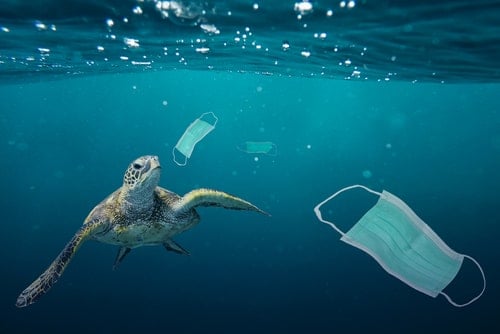Deadline:31-Dec-21
The Ocean Risk and Resilence Action Alliance (ORRAA) in partnership with the Swiss Re Foundation and with the support of the UK Government’s Blue Planet Fund is launching its second Ocean Resilience Innovation Challenge to select and nurture up to six community-led innovative and scalable financial and insurance products that build coastal resilience and reduce ocean risk.
The Ocean Risk and Resilience Action Alliance. ORRAA, brings together the finance and insurance sectors, governments, non-profits, and stakeholders from the Global South to pioneer finance and insurance products that incentivise investment into nature-based solutions, with a focus on protecting the regions and communities that need it most.
Benefits
- The Challenge’s winners will receive customised mentoring to maximise their potential for impact, scalability and investability. ORRAA and partner organisations will offer support following a four-step approach: analysing the local context to ensure full understanding of the target communities’ challenges; refining project proposals to ensure that they meet the needs of local stakeholders; optimising proposed solutions to improve their business models; and developing a roadmap for implementation.
- The Challenge winners will also be connected to funders, supported in their preparations for formal pitching, and attend the Leadership Academy designed to bolster the skills needed to achieve their projects’ long-term goals. Mentors from ORRAA and its partners will work with project leaders to build a broader ecosystem of partners and potential investors, while helping them prepare to take more active roles in leading their solutions as they grow.
- Some next-stage funding will also be granted to winning projects that graduate from the Challenge and meet pre-agreed criteria.
- Overall, the Ocean Resilience Innovation Challenge aims to strengthen the projects’ potential for successful launch and scaling by refining business models and boost individual and institutional resilience, and ultimately help them to maximise their impact on the communities and regions most exposed to ocean risk.
Eligible Countries
Albania, Algeria, Angola, Antigua and Barbuda, Argentina, Bangladesh, Belarus, Belize, Benin, Brazil, Cabo Verde, Cambodia, China (People’s Republic of), Colombia, Comoros, Congo, Costa Rica, Côte d’Ivoire, Cuba, Djibouti, Dominica, Dominican Republic, Ecuador, Egypt, El Salvador, Equatorial Guinea, Eritrea, Fiji, Gabon, Gambia, Ghana, Grenada, Guatemala, Guinea, Guinea-Bissau, Guyana, Haiti, Honduras, India, Indonesia, Jamaica, Jordan, Kenya, Kiribati, Liberia, Madagascar, Malaysia, Maldives, Marshall Islands, Mauritania, Mauritius, Mexico, Micronesia, Montenegro, Montserrat, Morocco, Mozambique, Myanmar, Namibia, Nauru, Nicaragua, Niue, Pakistan, Palau, Panama, Papua New Guinea, Peru, Philippines, Saint Helena, Saint Lucia, Saint Vincent and the Grenadines, Samoa, Sao Tome and Principe, Senegal, Sierra Leone, Solomon Islands, South Africa, Sri Lanka, Suriname, Tanzania, Thailand, Timor-Leste, Togo, Tokelau, Tonga, Tunisia, Turkey, Tuvalu, Vanuatu, Vietnam, Wallis and Futuna, West Bank and Gaza Strip.
Eligibility Criteria
- They are calling for proposals from individual organisations or consortiums across public, private, local civil society, international NGOs and academia. Both experienced implementers as well as start-ups, hubs and accelerators from the Global North and South are encouraged to apply.
- They are looking for innovative and scalable finance and insurance products that drive investment in coastal natural capital and increase resilience. The initiatives must also reduce ocean risk for the most vulnerable, include a focus on gender, equity and human rights, and protect biodiversity.
- To be eligible an application must meet the following criteria:
- Being an innovative finance or insurance solution, or business model, that builds resilience to ocean risk in the most vulnerable coastal communities and places.
- Gender, equity, human rights and biodiversity considerations are included.
- The team has proven conservation or business experience
- The solution targets coastal ODA-eligible countries.
- The solution offers a profitable revenue model.
- The solution does no harm (I.e. has no negative impacts on communities or ecosystems it is designed to build resilience in)
For more information, visit https://www.oceanriskalliance.org/innovation-challenge/
